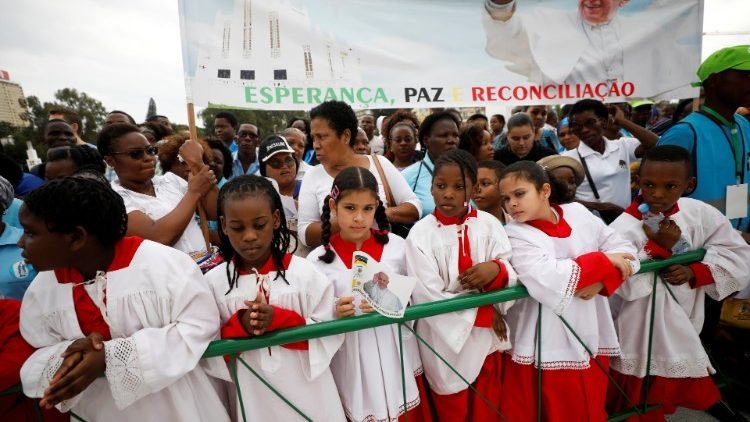Mozambicans voted on Tuesday, 15 Oct., in presidential, provincial and legislative elections that could test a fragile two-month-old peace agreeement between the ruling Frelimo party, and its old civil war foe turned opposition rival, Renamo.
Reuters – Maputo, Mozambique
The presidential, legislative and provincial polls are widely expected to extend Frelimo’s decades-long rule over the southern African nation that is set to become one of the world’s leading gas exporters.
Nyusi – Mozambique has chosen peace
Renamo is hoping to use electoral changes agreed in the peace pact to win control of its traditional heartlands in central and northern provinces for the first time since the civil war ended in a truce in 1992.
Rights groups and analysts have warned there could be unrest if it fails to make those gains.
“Mozambique has chosen peace,” President Filipe Nyusi said after casting his ballot at a school in the capital Maputo. He praised Mozambicans for deciding their destiny through elections and urged people to go to the polls peacefully.
Carlos Alberto: We need to see some changes
Carlos Alberto, a 22-year-old student, waiting to vote at the same secondary school said he wanted to see parliament hold the executive to account and push through promised reforms in education, work, housing and other areas.
“We vote, and then nothing happens,” Alberto said. “We need to make some changes.”
A corruption scandal over government borrowing has hit the economy and damaged Nyusi’s popularity.
A low-level Islamist insurgency in the north, on the doorstep of billion-dollar gas projects being developed by oil majors including Exxon and Total, has also taken the shine off Nyusi’s presidency and threatens security long term.
Fragile Truce
Most of Mozambique’s 13 million registered voters were born after Frelimo came to power in 1975 when the country won independence from Portuguese colonial rule.
Renamo fought Frelimo for 16 years from 1977 to 1992 in a Cold War conflict that killed about one million people. It ended in a truce, but sporadic violence has flared in the years since – including after Renamo challenged election results in 2014.
Under the peace deal signed in August this year, provincial governors will now be picked by the main party in each province, rather than the government in Maputo – an opportunity for Renamo to gain long-thwarted representation. But factionalism in Renamo and the fading popularity of its leader, Ossufo Momade, could yet make winning the number of provinces it would like a tall order.
Should it come back empty-handed, that could trigger further violence, Zenaida Machado, a researcher at Human Rights Watch, has said.
Sporadic violence
The run-up to the vote has already been marked by sporadic violence, including the killing of an election observer and attacks from a breakaway group of Renamo fighters.
A crowd that welcomed Nyusi at his final campaign rally in Maputo on Saturday cheered when he promised peace would last.
“Without peace, can we build factories … can we build roads?” Nyusi asked, to cries of “No” from supporters decked in his party’s signature red.
Polls were due to close at 6 p.m. (1600 GMT). The law allows 15 days for results to be announced, though they could come sooner.



